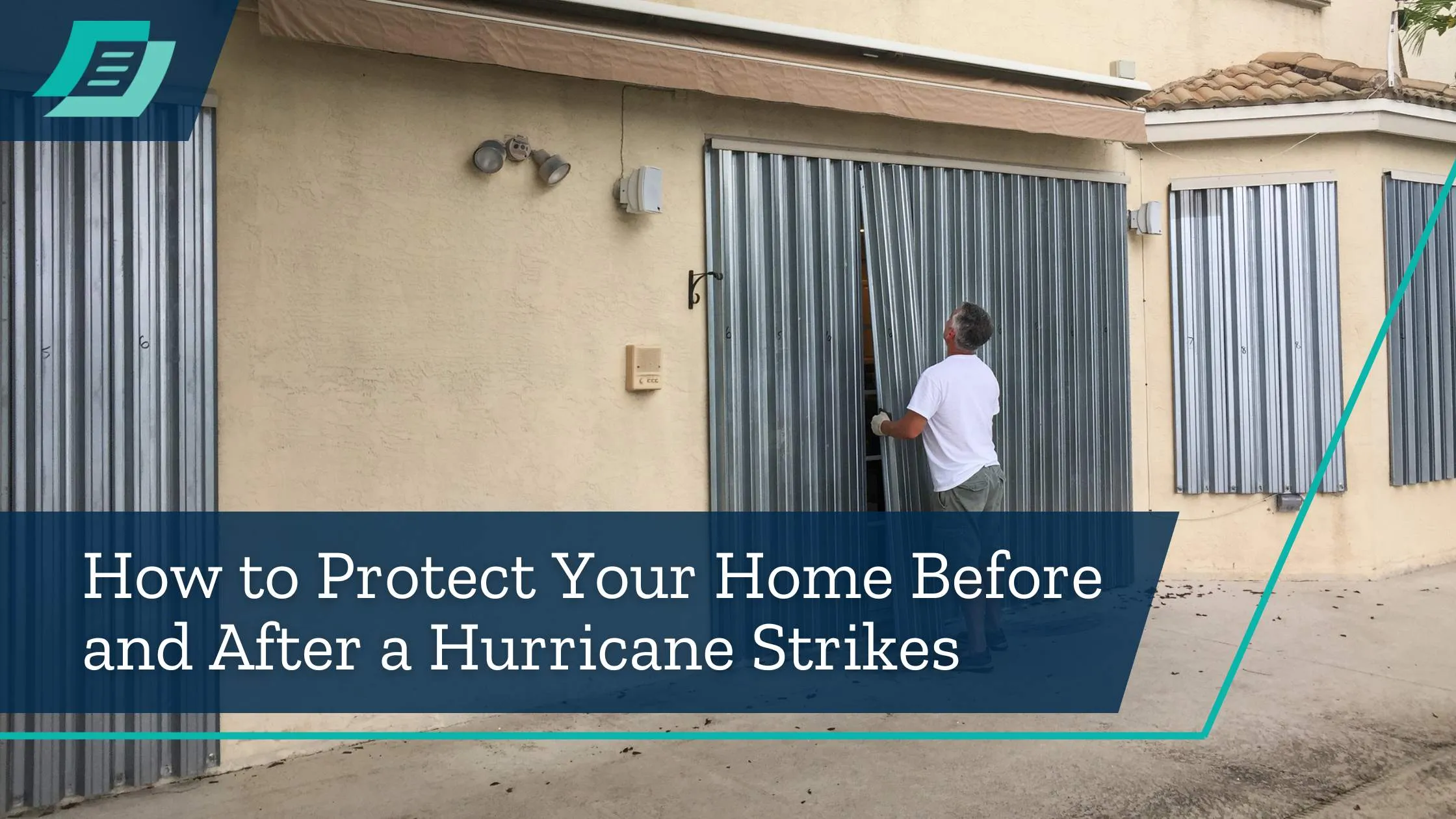
When a storm heads towards Florida, it often brings the risk of significant property damage. Whether you plan to stay or evacuate, homeowners and renters should take important steps to minimize harm and speed up recovery afterward. Here are some crucial steps to protect your home before and after a hurricane:
Before the Hurricane
Create an Inventory: Go room by room and make a complete list of all important items in your home. Estimate the value of each item, and attach photos and evidence of ownership. To streamline this process, use resources such as the Florida Office of Insurance Regulation's home inventory checklist and the National Association of Insurance Commissioners' home inventory app. Consider also using this home inventory guide by Florida Peninsula Insurance Company. Review the list with your insurance agent before the storm to confirm that your possessions are suitably insured.
Secure Important Documents: Gather deeds, receipts, ID cards, contracts, and other important paperwork. Keep them in a safe location that is easily accessible in case you need to evacuate.
Make Repairs: Replace worn-out roof tiles or shingles and repair any leaks to avoid water penetration. To help prevent water damage and mold growth, inspect and reseal the windows and doors. Address maintenance issues immediately and if you are renting, notify your landlord about necessary repairs.
Clean the Yard: Do not wait until the storm is imminent to trim and prepare your yard for a hurricane. Trim trees and foliage to reduce potential projectiles. Make sure to hire professionals for trees near power lines. Check trees near your home for cracks, decay, or weak roots, and consider removing them if necessary. Bring in outdoor items like bikes, furniture, grills, propane tanks, and building materials.
Secure Windows, Doors, and Other Openings: Lock windows and doors and consider adding heavy-duty bolts. Use plywood or shutters to cover windows; avoid taping them. Ensure that you seal and reinforce garage doors, vents, electrical outlets, and other wall penetrations with high-quality caulk.
Know Your Evacuation Route: Regardless of whether you are in an evacuation zone or not, spend some time learning how to properly exit your house and evacuate the region in case you need to. Additionally, make sure you have a hurricane kit prepared with all the necessities that you will need.
Protect Your Electronics: Install a hard-wired surge protector in your electric service panel to shield your entire home. Use surge protectors (not power strips) for valuable electronics like TVs, computers, and game consoles. Make sure to replace surge protectors every three to five years. If you can, unplug electronics before evacuating and place them away from windows on elevated surfaces.
After the Hurricane
Assess and Document Damage: Once you have received the all-clear from authorities and the winds have calmed down, carefully inspect your home for any damage. Take photos and videos of the damage for any insurance claim.
Prevent Further Damage: Take reasonable steps to prevent additional damage to your property, such as covering broken windows, placing a tarp over a damaged roof, or removing moldy items. Keep receipts for any temporary repairs you make – these costs may be reimbursable under your policy. Additionally, if you choose to work with state-licensed contractors, be wary of anyone promising easy loans or requiring upfront payment for work to prevent being scammed. We have preferred repair personnel that can assist as well – call your carrier first and get the best help available for your home.
Get Important Supplies Together: Know where your batteries, radio, and other supplies are. You may need to put these items to use in the dark if the power is out.
Avoid Standing Water: Following a hurricane, floodwaters can keep rising. Walking or driving across standing water is dangerous because you could get electrocuted, fall, or sustain other injuries. If driving, make sure to note that a car can float in as little as 12 inches of water. Numerous dangers, such as sewage, disease, unforeseen potholes, and deadly animals, could be hidden in the water.
Clean Up Safely: When clearing debris, wear safety gear like masks, gloves, and sturdy shoes. Be careful around unstable structures, flooded areas, and fallen power lines. Only start cleaning if it’s safe -- and watch out for potential hazards.
Prepare for Upcoming Storms: Make sure your insurance covers your needs by reviewing and updating it. Stock up on supplies for emergencies and go over your storm preparedness strategy.
Make Sure Your Home Is Ready for Hurricane Season
We hope you consider these tips to keep your home and family safe as the peak of Hurricane Season approaches. In the event of a storm, Windward Risk Managers’ company partners stand ready to assist our policyholders and agents.






